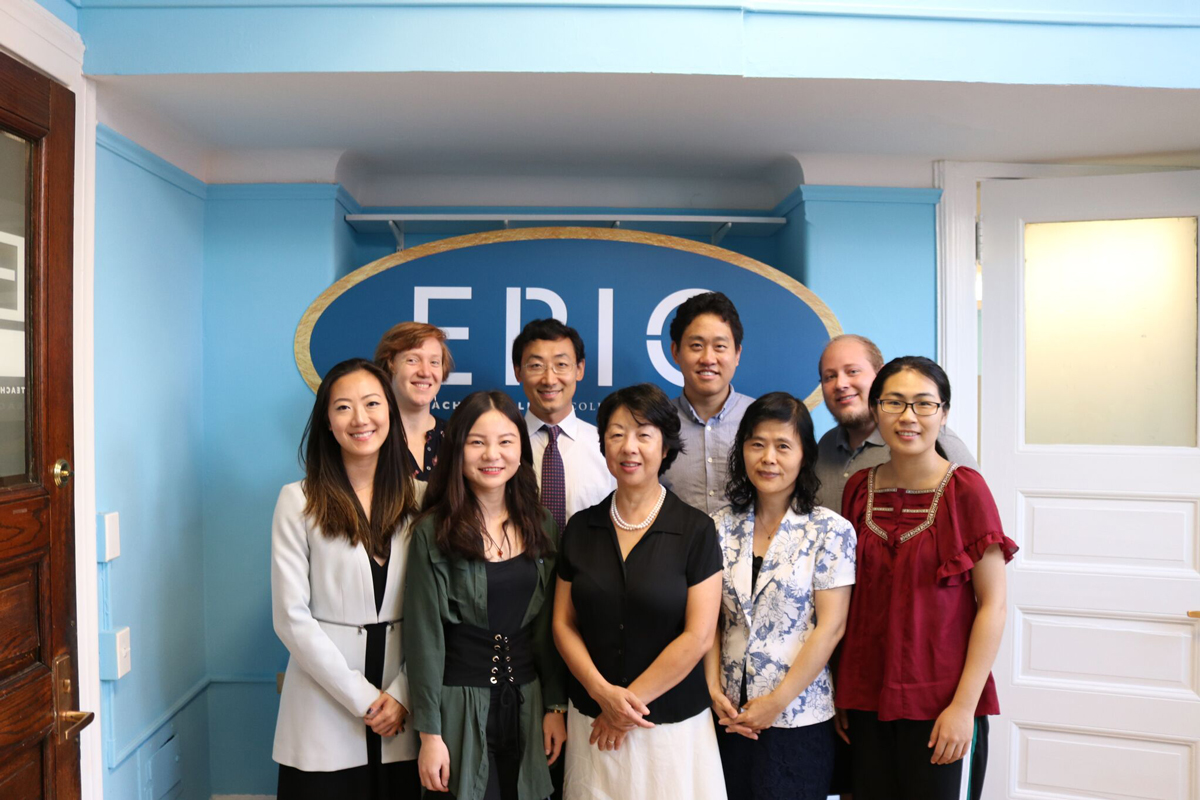Great ideas tend to attract really smart people.
That truth has been confirmed time and again throughout Teachers College’s history, but perhaps never more so than by the groundbreaking study authored three years ago by Xiaodong Lin-Siegler, Professor of Cognitive Studies in TC’s Department of Human Development. The research, funded by a $2.5 million grant from the National Science Foundation and published by the American Psychological Association, found that high-school students may improve their science grades by learning about the personal struggles and failed experiments of great scientists.
“When kids just think Einstein is a genius, then they believe they can never measure up to him,” Lin-Siegler said at the time. “Many kids don’t know that all successes require a long journey with many failures along the way.”
Flash forward to the April 2018 launch of TC’s new Education for Persistence and Innovation Center (EPIC) which, under Lin-Siegler’s direction, will study failure and its potential as a catalyst for innovation and success – “an enterprise so intuitively right,” said then-TC President Susan Fuhrman, “that it is almost baffling that it hasn’t been taken up more widely.”
A growing cast of funders agrees with her.
EPIC was created with initial backing from Weiming Education Limited, a leading provider of private schools in China; the Alvin I. & Peggy S. Brown Family Charitable Foundation; the NSF; and the Carnegie Corporation of New York. At a signing ceremony at the College, TC also presented its inaugural EPIC Achievement Award to businessman and education philanthropist Dr. James S.C. Chao, founder of Foremost Group, one of the world’s leading shipping and transportation companies. Chao, who grew up in a poor farming village in China before making his way first to Taiwan and then the United States, was joined by three of his daughters: Elaine Chao, U.S. Secretary of Transportation, who later introduced a discussion of the family’s history; May Chao, a successful businesswoman; and Angela Chao, current Chairman and CEO of Foremost Group and President of Foremost Foundation.
But that was by no means the end of the fireworks.
In August, EPIC received a $3 million gift from the Yu Panglin Charitable Trust becoming the first institution outside of China to receive a donation from the organization.
The Foundation, which hosted a delegation of TC representatives to announce the gift, was established by the late Chinese real estate magnate Yu Panglin. As a young man, Yu sold trinkets and pulled rickshaws in Shanghai, where he was falsely arrested on charges that he came from a family of wealthy landlords. After serving three years in a “thought correction center,” Yu worked his way up to become a real estate giant in Hong Kong. He subsequently donated his entire $10 billion estate to philanthropic causes, which included restoring sight to needy cataract patients, providing local disaster relief throughout China, and supporting education for disadvantaged students.
“Those who achieve great success in life learn and grow from their failures, and indeed, owe much of their success to their failures, their struggles and their setbacks,” said Lin-Siegler at that event, calling Yu’s story “a testament to the power of persistence in the face of great adversity.”
Now Lin-Siegler is undertaking EPIC’s first big project: a series of interviews with Nobel laureates aimed at documenting, more precisely, the role that failure has played in their work. That effort will move into high gear this spring with EPIC’s inaugural Panglin lecture, which will be delivered by Columbia University’s Martin Chalfie, who shared the Nobel Prize in Chemistry in 2008 for his work on the green fluorescent protein (GFP) and its use in biological science research.
